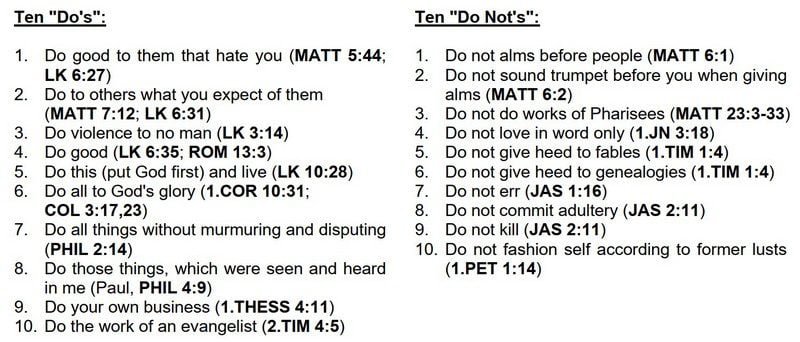
Jesus said:
Come unto me, all ye that labour and are heavy laden, and I will give you rest. Take my yoke upon you, and learn of me; for I am meek and lowly in heart: and ye shall find rest unto your souls. For my yoke is easy, and my burden is light. (Matthew 11:28-30)
Jesus says that those who take on his yoke will find rest for their souls. His yoke and burden are light.
What does Jesus mean when he uses the word yoke? Strong’s Exhaustive Concordance defines the word this way: to join; a coupling that is, (figuratively) servitude (a law or obligation); also (literally) the beam of the balance (as connecting the scales).
Thayer’s Lexicon defines yoke this way: a yoke that is put on draught cattle; metaphorically, used of any burden or bondage (as that of slavery).
After reading several commentaries on Matthew11:28-30, I concluded that the yoke Jesus asks his followers to wear is his commandments and teachings; that according to commentators this yoke encompasses all the laws and precepts found in the Bible — “rightly” interpreted, of course.
John adds:
For this is the love of God, that we keep his commandments: and his commandments are not grievous. (1 John 5:3)
If someone says he loves God, he will keep God’s commandments, and these commandments are not grievous (burdensome).
Ye shall diligently keep the commandments of the Lord your God, and his testimonies, and his statutes, which he hath commanded thee.
Let us hear the conclusion of the whole matter: Fear God, and keep his commandments: for this is the whole duty of man.
Solomon says that the whole duty of man is to do what? Fear God and keep his commandments.
Jesus told his disciples in John 14:15: if ye love me, keep my commandments.
How does one show his love for Jesus? By keeping his commandments.
And finally, John says throughout the book of First John:
And hereby we do know that we know him, if we keep his commandments. He that saith, I know him, and keepeth not his commandments, is a liar, and the truth is not in him. (I John 2:3-4)
And he that keepeth his commandments dwelleth in him, and he in him. And hereby we know that he abideth in us, by the Spirit which he hath given us. (1 John 3:24)
By this we know that we love the children of God, when we love God, and keep his commandments. (1 John 5:2)
Evangelicals equate salvation with believing the right things. I have often said that the Evangelical gospel can be summed up thusly: BELIEVE this and thou shalt live. However, based on the aforementioned verses, the gospel is actually, DO this and thou shalt live; that the essence of Christianity is not only believing the commandments, teachings, laws, and precepts of Jesus/God/Apostles, it’s putting them into practice and living them out day by day.

There are 613 laws in the Old Testament alone. According to an extensive list produced by Christian Assemblies International, there are 1,050 New Testament commands. (PDF)
Evangelicals fuss and fight over how many commands and laws, exactly, there are in the Bible. Once Evangelicals figure out the number of commands, then they argue about how many are still applicable today. No two Evangelical churches or preachers agree on which commandments are valid and in force. Even when it comes to the Ten Commandments, most Evangelicals only practice nine of the commandments, and some Evangelicals don’t practice any of them, choosing to follow only the teachings of the Apostle Paul.
Whatever the number of commands, one thing is for certain, Evangelicals don’t do a very good job of keeping them. Jesus said his yoke was easy and his burden was light. Why, then, do most Evangelicals routinely ignore or disobey the teachings of the Bible? It seems, at least from my perspective, that Evangelicals find God’s laws and commandments a real pain in the ass; a big inconvenience; an impossible task, so why bother?
Evangelicals present their religion as transformative; that Jesus will fix whatever ails you. Paul said in 2 Corinthians 5:17:
Therefore if any man be in Christ, he is a new creature: old things are passed away; behold, all things are become new.
Evangelicals SAY they are IN CHRIST. If so, according to the inspired, inerrant, infallible Word of God, Christians are new creatures (creations): old things pass away and everything becomes new.
Any casual investigation of Evangelicalism reveals that there is a huge disconnect between what God’s chosen ones say and how they live. In other words, they are hypocrites.
I am not suggesting that Evangelicals as a whole are bad people. I have met scores of Evangelicals whom I consider decent human beings. However, Evangelicals have a marketing/messaging problem. Evangelicals tell the unwashed, uncircumcised Philistines of the world that Jesus makes all things new; that Jesus alone can change lives. That’s the sale pitch. However, most people who sign on the dotted line spend their lives trying to measure up to the Biblical standard — and fail. Why do Evangelical preachers spend an inordinate amount of time exhorting and rebuking congregants, calling out their less-than-Biblical lives, all while never looking in the mirror? If Jesus is all Evangelicals say he is, why is the product produced so inferior? Why is there no difference between Evangelicals and their counterparts in the world?
I am sure the True Christians® among us will say that many Evangelicals are fake believers or cultural Christians. However, having once been a True Christian® myself for many, many years, I know that sold-out, on-fire, Holy Ghost-filled Christians are every bit as hypocritical as those deemed fake or cultural Christians. The difference, of course, is that True Christians® are experts at playing the godliness/holiness/sanctified/separated game. They know how to put on a front; how to make those around them think they are super-duper followers of Jesus.
“How dare you insult me. Bruce. I am a real Christian. I follow the teachings of the Bible to the letter.” No you don’t, and you know it. Quit playing the game, and admit that you are nothing more than an everyday flawed, frail human being, just as the rest of us are. Aren’t you tired of riding the high ground on your moral high horse? You may think you have people fooled, but you don’t. Those around you see you as you are. And that goes for so-called men of God, too.
I am not suggesting that Evangelicals stop trying to live according to the teachings of the Bible. There’s some good stuff in the Bible: you know, commands such as loving your neighbor as yourself or not letting the sun go down on your wrath. All I ask is that Evangelicals stop demanding others live according to the teachings of the Bible, when they, in fact, can’t agree on what those teachings are, nor can they keep them.
Bruce Gerencser, 66, lives in rural Northwest Ohio with his wife of 45 years. He and his wife have six grown children and thirteen grandchildren. Bruce pastored Evangelical churches for twenty-five years in Ohio, Texas, and Michigan. Bruce left the ministry in 2005, and in 2008 he left Christianity. Bruce is now a humanist and an atheist.
Connect with me on social media:
Your comments are welcome and appreciated. All first-time comments are moderated. Please read the commenting rules before commenting.
You can email Bruce via the Contact Form.
